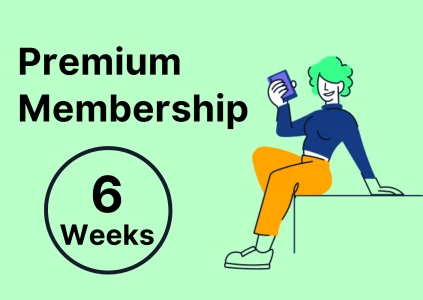Your input will be appreciated.
What is an innovation for ending poverty that you think is currently under-utilized?
Your input will be appreciated.
What is an innovation for ending poverty that you think is currently under-utilized?


Tough one!
I believe to tackle this question, you need to differentiate what you mean by poverty. I would break it down into (at least) two buckets:
The diagnosis for these two is very different, as are the remedies.
On bucket 1, a lot of this has to do with the inclusiveness of a society and social determinism. This can be tackled by a whole range of measures, from taxation, social security and health insurance, public housing and zoning policies, industrial policy and so forth. Top of this list would probably be access to high-quality education, especially for children from a difficult social background. Of course, there is no quick fix for this, but over a generation or so, these measures will have an effect, political will provided (I know, that that's the big IF here...).
On bucket 2, it's a lot more difficult. I am a big believer in the theory propagated (among others) by Acemoglu and Robinson in their absolutely brilliant book "Why nations fail". This is an absolute must-read, by the way. The essence of the book is, that there are two key prerequisites for the wealth of nations (not going into Adfam Smith here...). These are:
The tricky thing is, that history exhibits a very, very strong path dependency - once a society is on the wrong track, you hardly ever recover. Even worse, even if an existing order is replaced, say by a revolution, it is likely to be replaced with another one, that is just as extractive and exclusive. Just look at Zimbabwe, Cuba, Russia, most of the Arab spring coutries, Iran. The examples are legion. This is called the "iron law of oligarchy". To change paths, really major external events or shocks need to take place.
In Western Europe, this was for example the plague in the 14th century that wiped out a third of the population. This created a shift in power as there was a shortage of rural labor in the feudal system, creating a stronger position for cities, which over time led to the emergence of a class of merchants and craftsmen, which then destabilized the feudal order.
For England it was the colonies, particularly North America, and the slave trade, creating a wealthy class of merchants that became so powerful that they started to wrestle priviliges from the crown.
Sadly, the slave trade also was such an event for Africa, extracting many of the most able people from their societies and creating a state of eternal warfare with the goal of each tribe etc. to capture salves to sell to the slave traders. This eternal war, which lasted for centuries, and the extraction of massive amounts of human capital, is one of the major reasons why sub-saharan Africa is in such a terrible state today.
And so on...
So what does that mean?
It means that whenever the goal is to address poverty on a major scale, one needs to keep in mind that most of the time, these measures will begin to destabilize an existing political and economic order. This will be met by resistance and backlash.
So it is easy to say:
"To alleviate poverty, one needs to change the role of women in a society."
or
"To reduce hunger, we need to teach people more sustainable agricultural practices"
or
"The country will benefit greatly if it gets access to the world market"
All of these are probably true, at least on a micro level. But on a macro level, powerful forces are interested in preserving the specific situation of a society. So once the masses would start to emerge from poverty, it may very well happen that the country tumbles into chaos or even civil war because the existing order is being upset.
I know this is a very pessimistic view of things, and it does not really answer your question. But if we look around us, the examples of countries that have "made it", are relatively scarce. Despite all the knowledge and capital we have. Despite all the development aid and generations of politicians who were intent and well-meaning to change their coutries' fates once the yoke of feudal rule / colonization / communism / dictator XYZ and so on was shrugged of. It just does not happen like this.
I would even say that China, despite its massive advances over the last 30 years, is not yet over the hump of really having transformed into a society that creates wealth not just from re-allocating ressources from rural to industrial activities, but from actual innovation. But I would say they are the most likely candidate.
Cheers
Elias
PS: To maybe lighten the mood a bit, on a micro-level I believe the work that Mohamed Yunus and the Grameen Bank have done are a very good blueprint for addressing widespread poverty. It combines the empowerment of women, which is key, with access to capital, which in turn yield productivity increases, which creates surpluses to rise above subsistence. So if I'd have to bet on something, it would be this approach.

Where?
You probably know the saying, "give the man a fish, feed him for a day; teach him to fish, feed him for life". I believe we need to help the poor help themselves. This is why micro loans are so successful, we enable poor (typically) women to earn a little money and start controlling their destiny. It doesn't take much money, but a lot of work and patience on their behalf -> no easy solution, no magic wand.
The same could probably apply in the rich countries, but our welfare states probably get in the way a little bit. If you give me a few hundred bucks a month, sure I don't live very comfortably, but why would I bother working group hard and perhaps get out of poverty in many years down the line if I am lucky? This debate is one of the core differenCesar between political parties on both sides of the aisle for example, both in the US where I currently live, and in various European countries where I have lived before. I don't profess to know that particular answer, just pointing out that most of us humans are hard wired to take the easy way out.
One more thing - "poverty" is typically a moving definition, where an increase in the average wealth of a country will increase the official poverty threshold. Does it really .after if I am poor, or shounder we focus on more qualitative metrics such as happiness (ugh, good luck defining that), access to Healthcare, life expectancy, or even basic needs met? Again, I don't know for sure but suspect we in the West have adopted a paternalistic attitude and are focused on the wrong metric for purely political reasons.
Hope this helps? Interesting question. Btw, I'll point out that many consultancies have a strong non-profit activity, and wrestle with that question as well. A number of my former colleagues at BCG Dallas spent a year working on this or related topics in the middle of their consulting careers -> if this is truly a passion of yours, make sure to bring it up during the application process.
Best,
Guennael
Ex-BCG Dallas.

Poverty is a situation where a human struggle real hard to have a miserable meal that leads to unhealthy conditions like depression or any other disease, everyone hates poverty, but very few takes steps to help people overcome poverty. I don't think so there is an innovation for ending poverty, but as an individual, to save the humanity, you can participate in humanitarian mission. One of my friend's suggested this helpful site http://www.mission-humanitaire-afrique.org to join humanitarian mission.











